#supportnotstigma
Explore tagged Tumblr posts
Text

Trauma-informed practice creates safe, supportive spaces where healing begins. When we understand trauma, we empower recovery and resilience."
#TraumaInformedCare#HealingJourney#MentalHealthMatters#TraumaAwareness#SupportNotStigma#ResilienceBuilding#TherapeuticHealing#MindfulSupport#SafeSpaces#EmpowerRecovery
7 notes
·
View notes
Text
✨ Dyslexia Isn’t a Flaw — It’s a Different Way of Thinking ✨🧠
Struggle with spelling? Read slower than others? Mix up letters like b and d?

You’re not broken. You’re not lazy. You might just be Dyslexic — and that’s okay. 💛
Dyslexia doesn’t mean you’re less smart — it means your brain learns in its own unique way. Some of the most creative minds in the world have Dyslexia. 🌍🎨
Here’s what helps: ✔️ Patience (from you and others) ✔️ Supportive routines and tools ✔️ Knowing you're not alone ✔️ Encouragement > criticism
Let’s stop seeing Dyslexia as a setback and start seeing it as a strength. 💪 Every mind works differently—and that’s what makes the world so incredible.
💬 Share your story or tips below.
0 notes
Text
Autism in a Bookstore
Recently, I encountered a teenager with special needs inside Fully Booked at TriNoma mall. I was quietly scanning the back of a book, feeling the comfortable quiet of a bookstore when an outburst made me almost drop it to the ground.
I saw an overweight teen walk past my aisle, almost pushing people out of the way as he charged toward the comic section. I won't sugarcoat it—he looked like a walking medical issue. His heavy steps slightly shook the ground. I thought he was a spoiled rich kid prancing around in the metro before I realized he was on the spectrum. His initial outburst made it sound like he was Daddy's arrogant little boy. But it was obvious afterward that he was on the spectrum.
The teen stayed in the bookstore for more than half an hour. He was unruly, shouting obscenities and narrating his innermost thoughts for the crowd to hear. None of that was his fault, of course. My main concern was determining if the staff had experience dealing with this situation. Already, one staff's reaction was to mockingly mimic the autistic person's shouts and movements. Others were staring, unsure of how to proceed. The lady guard had a stern, irritated look that made me think she was going to throw him from the store. Others chuckled and pointed. I sighed inwardly: simple-minded Filipinos love to laugh at a spectacle.
I understood where she was coming from, though. To some of them, the autistic person was causing a scene. From the moment he entered, he was speaking loudly, unaware of how his volume affected those around him. I tried to diffuse the situation somehow by frowning at the man who mocked the teen's disability, so that other staff members would see it was not a laughing matter, and to continue back to my book as if there was no disturbance. Thankfully, other customers chose the same tactic and went back to their shopping or reading, and those who could not stomach the disruptive noise chose to leave. To be fair, the words coming from his mouth were hurtful and taboo--words that you dare not say in public for fear of being labeled as "baliw".
My other concern was that the autistic person didn’t seem to have a guardian with him. I stepped outside to check if someone was watching over him but found no one. When I went back inside, I was glad to find some of the staff gradually adjusted their approach. There was that, at least. They spoke to him in softer tones and ensured that he wouldn’t damage any books.
Throughout the situation, I felt a mix of emotions—shock, irritation, discomfort, and concern. I couldn’t help but wonder: What if someone who lacked understanding decided to harm him? Did he have access to proper therapy and support? And even if he did, was it enough? AND WHERE THE F WAS HIS GUARDIAN?!
This experience made me reflect on a deeper issue: the lack of awareness and resources in the Philippines for individuals with autism, especially those on the more severe end of the spectrum. Many people express sympathy for autistic children who are quiet or easy to care for, but what about individuals like him—those who are loud, impulsive, and unpredictable? When they grow up and are no longer "cute," will society still extend the same compassion?
This moment was a reminder of how crucial education and proper support are for individuals with special needs. It also highlights the need for greater understanding and empathy from all of us. Facing these realities isn’t easy, but talking about them is the first step toward ensuring that people like him receive the care and acceptance they deserve in our community.

#AutismAwareness#AutismAcceptance#Neurodiversity#InclusionMatters#SupportNotStigma#SpecialNeedsPH#PWDPhilippines#DisabilityAwareness#UnderstandingAutism#EndTheStigma#BeKind#FilipinoSociety#MentalHealthPH#AccessibilityForAll
0 notes
Text
The Diagnosis Catch
Last Tuesday, a very kind and caring psychologist confirmed what I have known for the last 4 years. I am autistic and have been for the last 48 years. Autism as a condition has been recognized as a condition since 1943. Today, diagnosis comes with levels instead of labels. The old systems of labeling people as high or low functioning was misleading. People who were diagnosed with high…
#adultautism#AustisticWomem#AutismAcceptance#Autisminwomen#InvisableDisability#Latediagnosis#mentalhealth#Neurodivergent#Selfdiscovery#Supportnotstigma#unmasking
0 notes
Text
‘Misunderstood: A Guide to Mental Wellness’
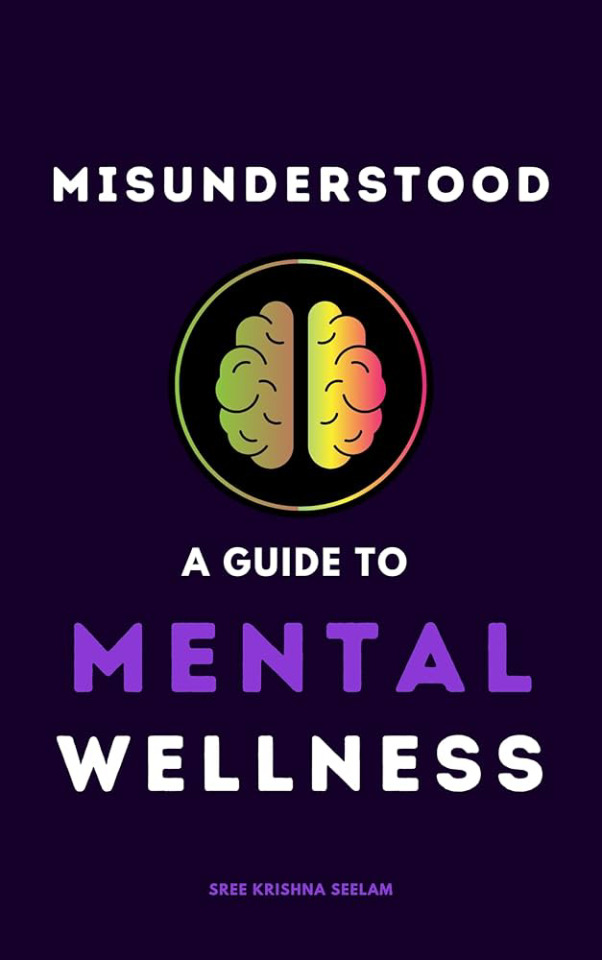
Imagine carrying an invisible weight—one that tightens around your chest when you wake up, dulls the colours of the world, and turns even the simplest tasks into mountains. Now imagine trying to explain that weight to someone who doesn’t understand, only to be met with blank stares, dismissive words, or well-meaning but empty reassurances.
This is the reality for millions struggling with mental health every day. Not because they don’t want help, but because the world around them still doesn’t truly see, hear, or understand.
‘Misunderstood: A Guide to Mental Wellness’ by Sree Krishna Seelam is a step toward changing that.
This book is the voice for every person who was told “It’s just a phase.” The scream behind every smile. The truth behind the silence. It’s a book that finally listens, when the world has spent too long turning away.
The Unseen Battle
Not all wounds bleed. Some are quiet. Invisible. A perfectly curated Instagram post. A laugh at the dinner table. A “Good morning” text. The world sees one version of reality, but beneath the surface, there’s a storm no one talks about.
The author pulls back the curtain on these unseen battles, weaving real-life stories of those struggling with depression, anxiety, and trauma—people who walk among us, unnoticed, unheard. The teenager who spirals in self-doubt but hides it behind straight A’s. The mother drowning in postpartum depression, too ashamed to say it out loud. The man who laughs the loudest at work, yet feels empty the moment he’s alone.
This book doesn’t ask you to just “be aware” of mental health—it makes you feel it.
Why we fail to see the signs
Mental illness isn’t just misunderstood—it’s misrepresented. We assume that if someone is suffering, they’ll show it. But what if they don’t? What if they keep it locked away behind “I’m fine”?
The author dives into why we’re wired to ignore mental struggles. How culture, upbringing, and fear have conditioned us to dismiss, rather than embrace, vulnerability. He explores:
· Why we equate mental health struggles with weakness
· The dangerous myths that stop people from seeking help
· How silence has cost lives—and how we can change that
It’s a hard pill to swallow, but an essential one. Because the truth is, someone in your life needs help right now. The question is, will you notice?
A handbook for healing
This book isn’t just about understanding—it’s about action. Sree Krishna Seelam provides real, tangible ways to support both yourself and those around you, including:
o How to recognize the warning signs (even the subtle ones)
o The right way to respond when someone reaches out
o When to encourage professional help—and when to just listen
o How to build a life where mental wellness isn’t an afterthought, but a priority
What sets ‘Misunderstood: A Guide to Mental Wellness’ apart is its heart. It’s not a clinical textbook filled with distant theories—it’s a compassionate conversation. A hand reaching out in the dark. A lifeline for those who feel unheard.
This book isn’t just for “them.” It’s for you.
For the times you’ve struggled but told yourself others had it worse.
For the moments you wanted to reach out but didn’t know how.
For the people in your life who may be suffering in silence.
Mental health isn’t someone else’s problem—it’s ours. And if we truly want to break the cycle of misunderstanding, we have to start by changing the way we see, listen, and respond.
So let’s talk. Let’s listen. Let’s stop letting mental health be misunderstood.
Read ‘Misunderstood: A Guide to Mental Wellness’ today. Because the world doesn’t need more silence—it needs more understanding.
#MentalHealthBooks#MustRead#SupportNotStigma#MindfulListening#TPWK#WeDidItFoundation#SreeKrishnaSeelam
0 notes
Text
The Silent War Within: Men’s Mental Health in Gaza and Beyond

Imagine a father in Gaza, 2025. The night hums with drones, a sound he’s known since childhood. His kids sleep—or pretend to—while he lies awake under a tarp, heart pounding, surrounded by rubble where homes once stood, replaying yesterday’s blast that shattered his neighbor’s life. Or picture an expat in Dubai, sipping coffee, scrolling X, haunted by guilt—he got out, his brother didn’t. Combat and violence don’t just scar the body; they carve into the mind. For Middle Eastern men, especially in places like Gaza, the war doesn’t end when the bombs stop—it just moves inside.
Men here face a brutal toll. Chronic trauma is a daily grind—Gaza’s airstrikes and sniper fire keep nerves frayed, sleep a distant memory. Studies show prolonged violence spikes cortisol, leaving men numb or wired, unable to relax even in silence. A 2023 UN report pegged PTSD rates in Gaza at over 70%—men included, though they rarely admit it. Then there’s the erosion of roles. Combat turns protectors into bystanders—fathers can’t stop shrapnel from piercing tents, providers can’t work in a blockaded economy. Shame festers when you can’t shield your son from screams or feed him more than bread. And stigma? Admitting you’re cracking under war’s weight feels like surrendering your manhood—cultures that prize resilience don’t make room for “weakness.”

But here’s the truth: surviving this isn’t weakness—it’s grit. And there are ways to fight the silent war. In Gaza, micro-routines can anchor you—sip tea each dawn, even if the cup shakes, or jot a thought in a notebook to tame the chaos. Peer support works too—local NGOs like SEEMA train men to listen, not fix, tapping into brotherhood over coffee or prayer. For panic under fire, try breathwork—slow inhales synced to dhikr (remembrance of God), a familiar rhythm to ground you. Expats? Turn guilt into action—raise funds for Gaza aid via UNRWA or MAP, or share survivor stories on WhatsApp groups. Redefine strength—organize a neighborhood watch or teach your kids a family recipe. It’s not about erasing pain; it’s about carrying it with purpose.
This hits harder in conflict zones. Gaza’s men grieve sons lost to rubble, expats mourn from afar—both wrestle ghosts of violence past and present. Yet, they endure. Fathers under fire whisper hope to kids, even when their own fades. Exiles build lives abroad, sending aid home. That’s not just survival—that’s defiance.

Your grief isn’t a burden. Your survival isn’t selfish. In a world demanding you stay unbreakable, know this: even mountains bend to outlast storms. Struggling? You’re not alone—help’s out there, free or cheap, wherever you are. Text Crisis Text Line (741741 in the US, global partners at crisistextline.org) for 24/7 support. Try 7 Cups (7cups.com) for free peer chats or low-cost therapy—anonymous, worldwide. In MENA, Nafsology (nafsology.com) offers affordable Arabic counselors online. For guidance, grab “Healing the Wounds of War” (“شفاء جروح الحرب” by Dr. Amal Hadi) in Arabic—a MENA lens on war trauma—or “The Power of Patience” (“قوة الصبر” by Dr. Khaled Al-Jaber), tying resilience to faith. Donate to Gaza via PCRF, UNRWA, or MAP—every bit helps rebuild lives. Share your load—comment below, reach out, heal on your terms.
#menshealth#mentalhealth#motivation#personalgrowth#ptsd#gaza genocide#MensMentalHealth#GazaResilience#MiddleEastMen#TraumaHealing#PalestinianVoices#WarAndMind#MentalHealthMatters#SabrAndStrength#MenUnderFire#HealingInCrisis#GazaAid#ArabMasculinity#SupportNotStigma#ConflictSurvivors#TumblrMentalHealth
0 notes
Text
#BeyondTheStigma#BreakTheSilence#EmbraceYourMind#EndTheStigma#HealingMinds#ItsOkayToNotBeOkay#MentalHealthAwareness#MentalHealthForAll#MentalHealthMatters#MindMatters#MindWellness#SpeakUpForMentalHealth#SupportNotStigma#TalkAboutIt#YouAreNotAlone
0 notes
Text
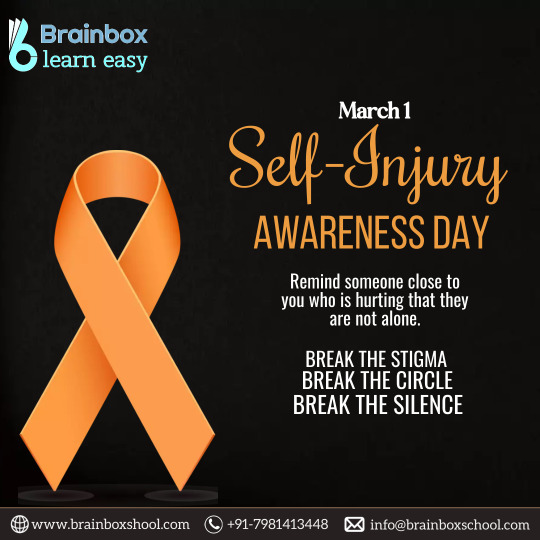
Self-Injury Awareness Day, observed annually on March 1st, is a day dedicated to raising awareness about self-injury and self-harm behaviors, as well as to reduce stigma surrounding these issues. Self-injury, also known as self-harm, refers to deliberately harming one's body without the intention of suicide. This behavior is often a coping mechanism used by individuals to manage overwhelming emotions or to express feelings they are unable to verbalize.
The observance of Self-Injury Awareness Day aims to educate the public about the prevalence and complexities of self-injury, as well as to provide support and resources for those who may be struggling with these behaviors. It is an opportunity to break down misconceptions and stereotypes surrounding self-harm and to promote understanding and empathy towards individuals who engage in these behaviors.
#SIAD#SelfInjuryAwarenessDay#EndTheStigma#YouAreNotAlone#SelfHarmAwareness#BreakTheSilence#MentalHealthMatters#SupportNotStigma#RecoveryIsPossible#SelfInjurySupport#YouAreLoved#SelfCareSunday#SpeakUp#MentalHealthAwareness
0 notes
Text

The term 'rough sleeping' represents real people facing real hardships every night. Let's raise awareness and support them in tangible ways.
0 notes
Text
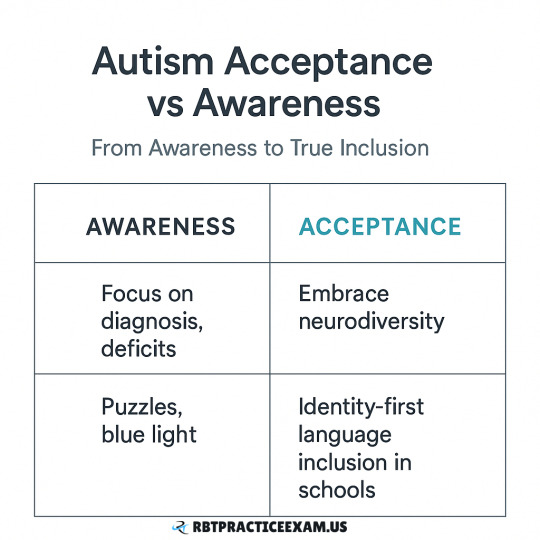
🧠💙 Autism Acceptance > Awareness
Awareness focuses on deficits. Acceptance embraces neurodiversity.
Let’s move past blue lights and puzzle pieces and start creating real inclusion with identity-first language, representation, and support in schools.
Because autistic people deserve more than just recognition. They deserve to be understood, respected, and empowered.
#ActuallyAutistic #AutismAcceptance #Neurodiversity #DisabilityInclusion #IdentityFirstLanguage #AutisticVoices #AutismCommunity #SupportNotStigma
0 notes
Text
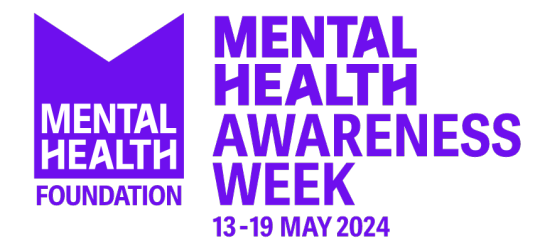
Here at @redcabincomics we support Mental Health Awareness Week. @mentalhealthfoundation MHAW is a crucial time for us to come together and emphasize the importance of good mental health. It’s reassuring to know that there are numerous organizations out there, like the Samaritans, MENTAL HEALTH FOUNDATION, and ANDYS MAN CLUB, providing support and lending an ear to those in need.
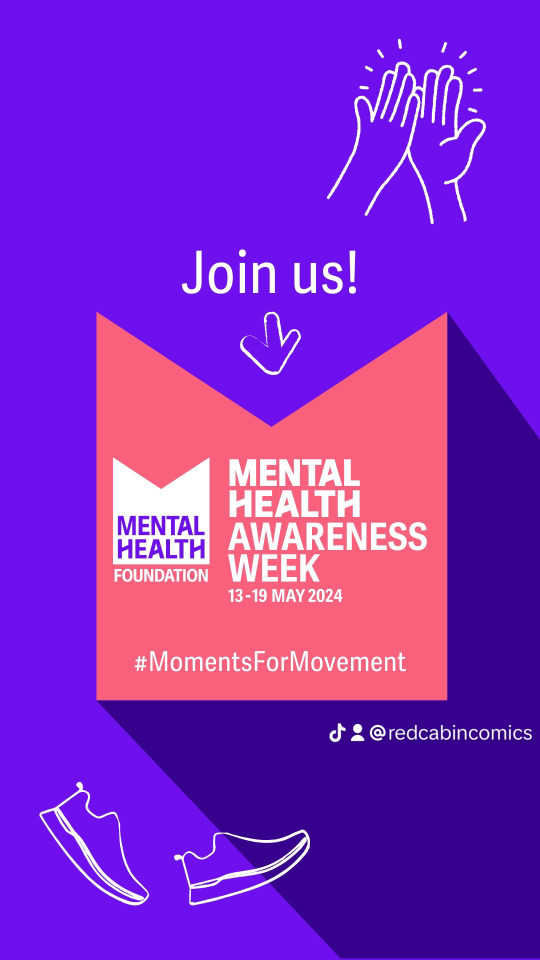
This year’s theme, “Movement: Moving more for our mental health,” highlights the connection between physical activity and mental well-being. It’s a reminder that taking care of our bodies can positively impact our minds.
ANDYS MAN CLUB, a men’s suicide prevention charity, is doing incredible work by offering free peer-to-peer support groups across the UK. Their mission to end the stigma surrounding men’s mental health and promote open conversations is commendable. With over 190 support groups nationwide and a growing number of participants every week, their impact is truly remarkable.
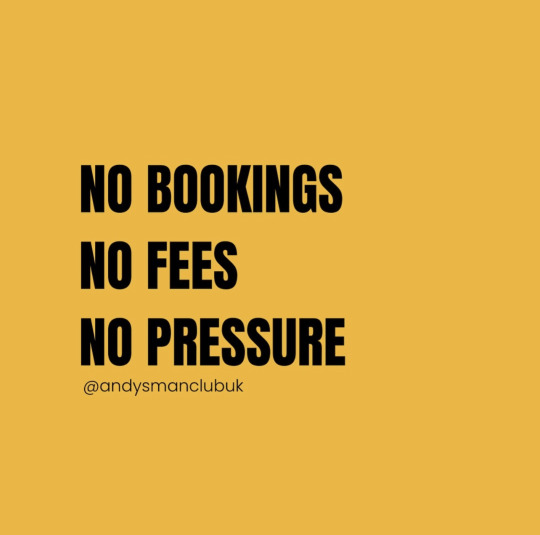
Founded in 2016 by Elaine and Luke, ANDYS MAN CLUB @andysmanclubuk provides a safe and non-judgmental environment where men can share their struggles without pressure. Their commitment to fostering a culture of openness and support is inspiring, and it’s evident that #ItsOkayToTalk.
Let’s continue to spread awareness, support one another, and prioritize mental health every day. Remember, it’s okay to talk.
#MentalHealthAwarenessWeek #EndTheStigma #ItsOkayToTalk #BreakTheSilence #MindYourMind #YouAreNotAlone #SpeakUpForMentalHealth #MentalWellnessMatters #SupportEachOther #HealthyMindHealthyLife #SpreadAwareness #EmpowermentInMentalHealth #StrongerTogether #OpenUpAboutMentalHealth #BreakTheTaboo #MentalHealthIsImportant #BeKindToYourMind #PositiveMentalHealth #TakeCareOfYourMind #MentalHealthSupport #YouMatter #SelfCareForMentalHealth #PrioritizeYourMentalHealth #StartTheConversation #MentalHealthEducation #PromoteMentalWellbeing #SupportNotStigma #MindfulnessForMentalHealth #RaiseAwarenessTogether #HealthyMindsetMovement
0 notes
Photo

Saturday night supporting the Chicago Recovery Alliance because these hoes need loving too (seriously)... #chicagorecoveryalliance #supportnotstigma #hugahoe #thesehoesareloyal #gotnaloxone #bigglove #revolutionbrewing #gummybears #beerandgummybears #citylife #artadventure #artsy (at Agitator: a co-operative gallery) https://www.instagram.com/p/B7M8rmjA3-O/?igshid=u0uenqk4kwti
#chicagorecoveryalliance#supportnotstigma#hugahoe#thesehoesareloyal#gotnaloxone#bigglove#revolutionbrewing#gummybears#beerandgummybears#citylife#artadventure#artsy
0 notes
Text
🧠✨ Behavior Therapy for Kids: A Superpower, Not a Shame
Big emotions. Tiny hearts. And sometimes? Kids need a little help. Behavior therapy for kids isn’t about “fixing” them — it’s about guiding them.

💡 It teaches:
Emotional control
Empathy & social skills
Healthy expression through play
Positive habits that stick
Not a weakness. Not a disgrace. Just support — at the right time, in the right way.
🌈 Strong kids start with safe spaces. 🛠 Therapy is one of them.
1 note
·
View note
Quote
Treating young parents with dignity is an issue of reproductive justice. Supporting young people so that they can build a strong future for themselves and for their children is an issue of economic justice. We can and must do more to stand with young parents. I don't want to be an exception. Making sure young people have what they need whether they choose adoption, seek abortion or become a parent should be the rule. We can do more to help young parents to pursue an education or training program or to find a job where they can make a living wage and also have a schedule that works. We need to stand with women and families no matter their age. Young parents, like all parents, need fair employment, educational opportunities, healthcare, housing, and childcare in order to be successful.
Jasmine Villegas Is Singing the Right Tune When It Comes to Supporting Young Parents
21 notes
·
View notes
Photo

I'm gunna try to wear this every day (when I leave the house/go in public) #mentalhealthawareness #supportnotstigma
0 notes